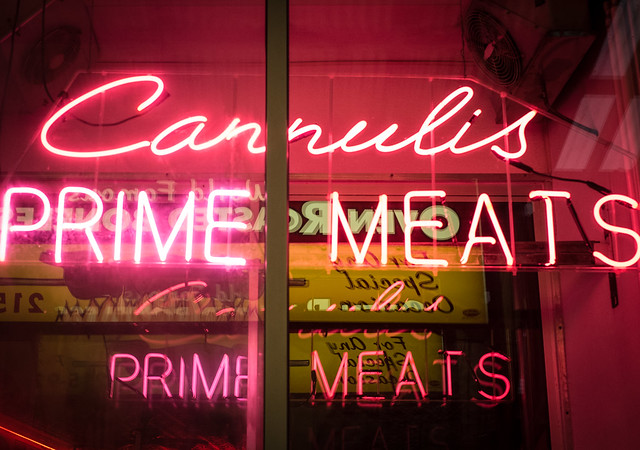Space and Time at the Urban History Association
A guest post by Andrew Needham.
I knew when I got the UHA’s conference program that I was in trouble. Five sessions a day, 11 concurrent panels in each session. How to choose between, say at 10:15 on Friday morning, the War on Poverty, Post-War Latino History, Spatial Change in the Mid-Twentieth Century US City, and Paths to Sustainability, all things that I’m centrally interested in in my own work. I didn’t want to be one of those people traipsing in and out of panels, a determination which, apart from interrupting my friend Andrew Highsmith’s conclusion by literally knocking over a chair on the way into his panel, I followed. I generally chose a panel and stuck to it.
And the conference exceeded my expectations. I did not see a single mediocre paper, not to mention attend a disappointing panel, the entire weekend. It’s clear that, as the packed room for the retrospective on Kenneth Jackson’s Crabgrass Frontier demonstrated, the work in postwar metropolitan history that has followed from, extended upon, and challenged the model laid forth in that book has moved in incredibly interesting and provocative directions, directions that the packed panel on municipal bonds (!) demonstrated have the potential to draw exciting conclusions from seemingly mundane aspects of urban fiscal policy.
In particular, the breadth of work on postwar Latino urban history demonstrated the real fruits of combining the transnational and the spatial turns in urban history. I’ll admit to having been skeptical of the transnational turn, thinking it often amounted to a way to combine research with travel destinations. Who wouldn’t want to work Berlin, Paris, and Buenos Aires into their study of housing policy? But the work being done by scholars mapping the intersection of Latin American and US urban history made me see the spatial possibilities of transnational metropolitan history anew. Given patterns of circular migration and bi-nationality, should we think of San Juan and Lawrence, Mass., as parts of the same metropolis, as Llana Barber suggested on Friday? As Julio Capo asked in the same panel, how did performances of gender and sexuality learned in postwar Havana change and retain continuity in postwar Miami? Or, as Amy Offner illustrated on Saturday, ideas about housing and self-help readily crossed the spaces between the US and Colombia in the postwar years. And this is only a sampling of the papers that made me think about the spatial connections within and between metropolitan areas in really exciting new ways.
On the train on my way home, I posted on Facebook that I thought the UHA was the single best academic conference that I had ever attended. And I still think that’s true … for me. While my phone immediately started buzzing with “likes” (I was in the silent car, like all good historians), it also buzzed with dissent from people whose scholarly work focuses on 19th century cities or earlier, saying that they felt that there was little for them at the conference. And perusing the program, I have to admit they’re probably right. This isn’t at all an indictment of the program committee, which did a phenomenal job of putting a terrific program together and made broad efforts to reach out to historians examining earlier cities. (And it didn’t help that the UHA overlapped with Ethnohistory and US Intellectual History, two places where such historians have established homes). It is, however, a warning for how we can shape the state of the field as well as the conference program in the future. Going forward, the UHA should make an effort to focus on time as well as space (an ironic victory of the spatial turn in history). I think this means not only doing outreach to make sure that there are panels concerning ancient and early modern cities, but also to make sure that we talk to each other across temporalities, including those historians in plenary sessions as well as panels like the discussion of Crabgrass Frontier. That book, after all, locates “the first extant expression of the suburban ideal” in a cuneiform letter to the King of Persia in 539 BCE. We should remember Crabgrass Frontier’s temporal breadth, lest we end up only talking to each other.
Andrew Needham is an associate professor of history at New York University. His new book from Princeton University Press, Power Lines: Phoenix and the Making of the Modern Southwest, explores the role of coal on Native American land in the development of the metropolitan Southwest.

